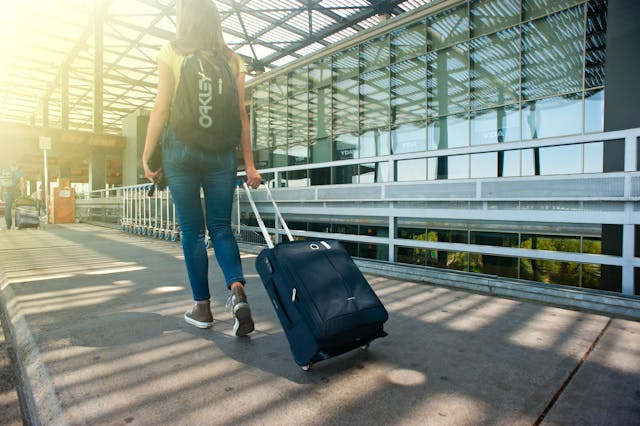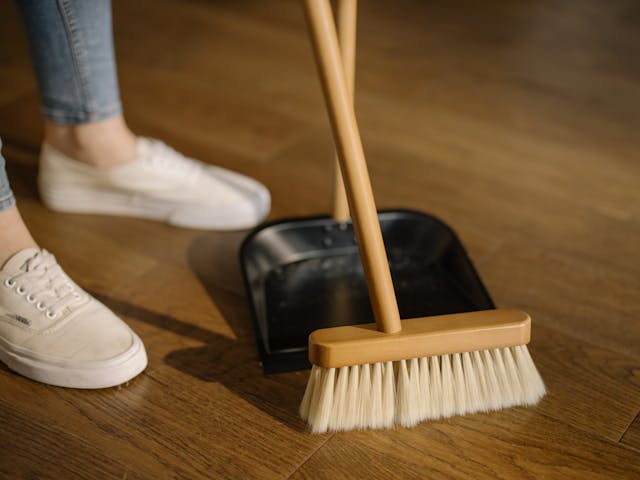Monthly Archives: April 2024
Travel Tips for Allergy Sufferers
What are some good travel tips for allergy sufferers? Traveling with allergies can be challenging, but with careful planning, you can enjoy your trip without discomfort. Here are some tips.

Travel Tips for Allergy Sufferers
1. Plan Ahead
Research your destination for potential allergens, such as pollen counts, local foods, and accommodations. Choose allergy-friendly hotels and destinations when possible.
2. Pack Allergy Essentials
Bring necessary medications, including antihistamines, nasal sprays, and epinephrine auto-injectors. Pack these in your carry-on for easy access.
3. Inform Your Travel Companions
Let your travel companions know about your allergies so they can help you avoid allergens and assist in case of an emergency.
4. Use Air Purifiers
If you’re staying in a hotel, consider bringing a portable air purifier to reduce allergens in your room. Some hotels also offer allergy-friendly rooms equipped with air purifiers and hypoallergenic bedding.
5. Be Cautious with Food
When traveling internationally, learn how to communicate your food allergies in the local language. Carry allergy cards that list your allergens and necessary precautions in the local language. Always inform restaurant staff about your allergies and choose dishes that are less likely to contain allergens.
6. Avoid Peak Allergy Seasons
If possible, plan your trips during seasons when allergens are lower. This can reduce your exposure and help you enjoy your travels more comfortably.
7. Keep Your Environment Clean
Wipe down surfaces in your accommodation and rental car to remove dust and allergens. Use hypoallergenic bedding and avoid feather pillows or comforters.
8. Stay Hydrated
Drink plenty of water to stay hydrated, as this can help alleviate some allergy symptoms. Avoid caffeinated and alcoholic beverages that can dehydrate you.
9. Manage Stress
Travel can be stressful, which can exacerbate allergy symptoms. Practice stress-relief techniques such as deep breathing, meditation, or gentle exercise.
10. Emergency Plan
Have a clear emergency plan in place. Know where the nearest medical facilities are, carry a medical ID, and ensure you have travel insurance that covers allergy-related emergencies.
Travel Tips for Allergy Sufferers: Conclusion
With the right preparation and precautions, you can manage your allergies effectively while traveling and enjoy a stress-free trip.
For personalized allergy management and travel advice, contact Dr. Boyan Hadjiev at Allergy, Asthma and Sinusitis P.C. Our team is here to help you travel safely and comfortably.
Dealing with Pet Allergies
 How can pet owners go about dealing with pet allergies? Pet allergies can be challenging, especially for animal lovers. Here are some effective strategies to manage them.
How can pet owners go about dealing with pet allergies? Pet allergies can be challenging, especially for animal lovers. Here are some effective strategies to manage them.
Ideas for Dealing with Pet Allergies
1. Create Pet-Free Zones
Designate certain areas of your home as pet-free, such as bedrooms, to reduce allergen exposure. This ensures you have a space to retreat to when symptoms flare up.
2. Bathe and Groom Pets Regularly
Frequent bathing and grooming can reduce the amount of dander (dead skin flakes) pets shed. Use hypoallergenic pet shampoos and consider professional grooming services.
3. Clean and Vacuum Frequently
Regularly clean and vacuum your home, focusing on areas where your pet spends time. Use a vacuum with a HEPA filter to capture small allergen particles effectively.

4. Use HEPA Air Purifiers
HEPA air purifiers can help remove pet allergens from the air. Place them in common areas and bedrooms to improve air quality.
5. Wash Pet Bedding and Toys
Frequently wash your pet’s bedding, toys, and other items in hot water to reduce allergen buildup. This helps minimize the spread of dander throughout your home.
6. Allergy-Friendly Furnishings
Choose furnishings that are easy to clean, such as leather or vinyl, instead of fabric-covered furniture. This reduces the amount of dander that can accumulate.
7. Allergy Medications
Consult with an allergist to discuss appropriate medications. Antihistamines, decongestants, and nasal sprays can help manage symptoms. In some cases, allergy shots (immunotherapy) may be recommended for long-term relief.
8. Personal Hygiene
Wash your hands after petting or playing with your pet to prevent transferring allergens to your face. This can help reduce allergy symptoms.
9. Limit Carpet Use
Carpets can trap pet dander and other allergens. Opt for hard flooring options like tile, hardwood, or laminate, which are easier to clean and less likely to harbor allergens.
10. Consider Allergy-Friendly Pets
If you’re considering getting a new pet, look for breeds that are known to be more allergy-friendly, such as certain dog and cat breeds that produce fewer allergens.
Dealing with Pet Allergies: Conclusion
Managing pet allergies involves a combination of regular cleaning, proper pet care, and medical treatment. By implementing these strategies, you can reduce allergy symptoms and enjoy the companionship of your pet.
For personalized advice and effective allergy management, contact Dr. Boyan Hadjiev at Allergy, Asthma and Sinusitis P.C. in NYC. Our team is dedicated to helping you live comfortably with your pet.
Serving all of New York City and the Tri State Area including Zip Codes: Top Allergist NYC Midtown, Chelsea and Clinton: 10001, 10011, 10018, 10019, 10020, 10036 | Gramercy Park and Murray Hill: 10010, 10016, 10017, 10022 | Greenwich Village and Soho: 10012, 10013, 10014 | Lower Manhattan: 10004, 10005, 10006, 10007, 10038, 10280 | Lower East Side: 10002, 10003, 10009 | Upper East Side: 10021, 10028, 10044, 10128 | Upper West Side: 10023, 10024, 10025
